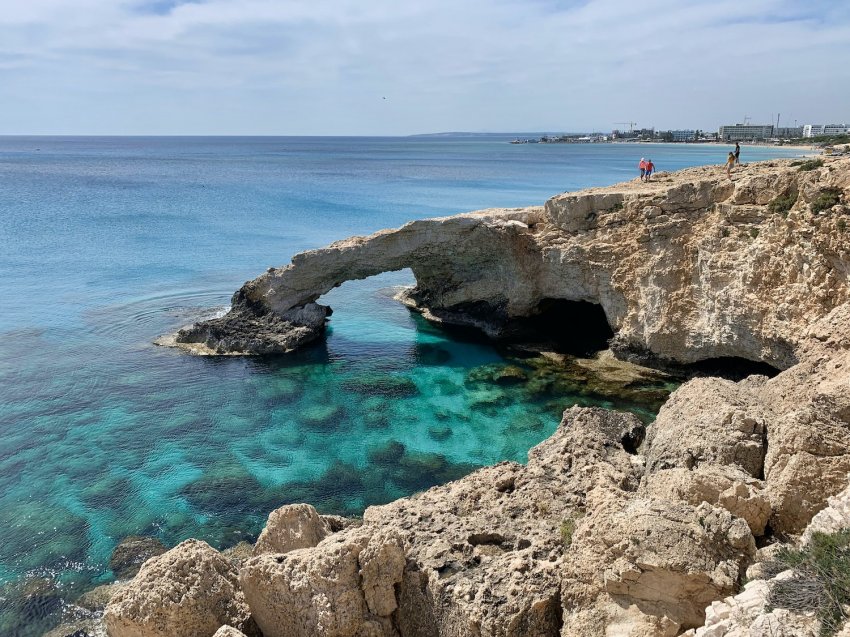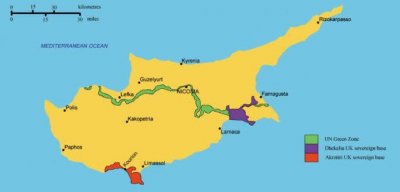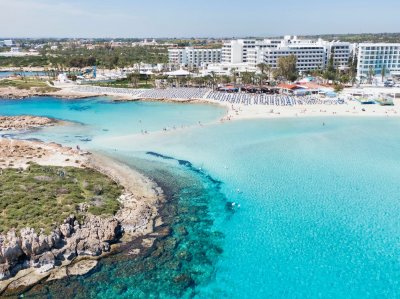The amber list will be scrapped from October 4, after the Government announced a new two-tier system for foreign travel.
The previous green and amber lists will be merged into the 'go' category. All other countries will be on the red or 'no go' list; arrivals from these countries will need to enter hotel quarantine on their return.
Additionally under the new regime, double-jabbed travellers from 'safe' countries will no longer have to take any sort of test before they get on a flight home from overseas; and later in October, only a lateral flow on their second day back in the UK, rather than a costly PCR test. However, strict testing rules will remain for the unvaccinated.
The NHS app has been used as a vaccine passport since July 19 to allow those who are fully vaccinated to return from amber list countries without being quarantined. Health officials advise patients to contact their GP if they find that the app does not offer them a “Covid pass” for travel and domestic use, despite being double jabbed.
Double-vaccinated expats have also been free to travel to the UK since August 2, as the Government now allows UK nationals who have been vaccinated overseas to register the jabs with their GP.
Here we answer the key questions on the amber list before it is merged with the green list on October 4.
What is the 'traffic light' system?
A country’s vaccination rates, infection rates, the prevalence of variants of concern and its genomic sequencing capacity – or access to genomic sequencing – help to inform its ranking in the traffic light system. All people travelling to England must complete a passenger locator form before departure. The lists are reviewed regularly, with updates so far issued every three weeks.
The ratings work as follows:
- Green countries: no quarantine, but a pre-departure test before returning to England and post-arrival PCR test. There is also a green watchlist. Destinations on this list are at risk of moving to amber.
- Amber countries: pre-departure test before returning to England, two post-arrival tests and self-isolation for up to ten days on arrival back in England (with the option to use 'Test to Release", which cuts the time in self-isolation). Fully vaccinated arrivals will no longer have to quarantine on return from all amber destinations. However, they must still take a pre-departure test before returning to England and pay for a PCR test on day two of their return as well as completing a passenger locator form.
- Red countries: non-residents banned entirely, compulsory hotel quarantine (and testing) on return for returning residents (direct flights are banned from some red-listed destinations)
What does 'amber' mean?
Previously, arrivals from amber list countries had to pay for at least two PCR tests (on days two and eight of their return), and could opt to pay for a third after five days of self-isolation under the 'Test to Release' scheme. They could cut their quarantine time short if this test came back negative (although they were still required to take the day eight test).
On July 19, the quarantine requirement was scrapped for the fully vaccinated returning from all amber destinations, except France. However, eligible travellers must still take a pre-departure test before returning to England and pay for a PCR test on day two of their return. Since August 2, the same rules apply to double-jabbed expats and travellers from the US and Europe who are fully vaccinated under an approved scheme.
The rules will remain the same for unvaccinated or partially vaccinated UK travellers though. To count as fully vaccinated you must have completed your second dose as least 14 days before departure.
When will these ratings be reviewed?
The lists are to be reviewed every three weeks following the end of the travel ban. The first review took place on June 3, the second on June 24, and third on July 14 and the fourth on August 4. The latest update was on August 26 with changes coming into effect on August 30. Note that countries will soon be rated as only 'low risk' or 'high risk'.
Should I book a holiday to an 'amber' destination?
There's no doubt that the scrapping of the quarantine requirement for fully vaccinated travellers has opened up travel to certain amber destinations.
Crucially, the FCDO no longer advises against all but essential travel to amber list countries such as Spain and Greece, meaning that travel insurance is much easier to secure. However, it can still advise against travel to amber destinations based on its assessment of Covid-19 risks.
It is worth remembering that amber countries might, without warning, impose their own restrictions on British holidaymakers and if you're not fully vaccinated you will still need to quarantine on your return to the UK.
It is also conceivable that amber countries could also be moved to the red list with little warning.
Which countries are amber?
These countries are among those rated amber (see the full list below):
Cyprus
Cases per 100k: 54.93
Population with second dose: 54.03%
The UK entered Cyprus’ Red category on July 8. The FCDO advice for Cyprus states: "Travellers with proof of two COVID-19 vaccinations are not required to take a PCR test before departure or on arrival. If you have received two vaccinations you will still need to obtain a Cyprus flight pass. You should check the Cyprus Flight Pass website for information on which vaccinations are acceptable, and the length of time which should have elapsed between your final dose and date of travel [...].
"Passengers coming from Red Category countries without proof of two COVID-19 vaccinations must undergo a PCR test within 72 hours prior to departure and provide proof of a negative result. You must then undergo another PCR test upon arrival at Larnaca or Paphos airports."
People returning from holidays in Cyprus in August and September have reported no problems at either airports and the process is much easier than they expected. The Cyprus Authorities are doing a wonderful job and Cyprus is seeing tourists arriving from all over Europe as the numbers of double vaccinated increases and travel becomes easier due to coronavirus testing.
Spain
Seven day case rate per 100k: 49.84
Adult population who've received a second dose of a Covid-19 vaccine: 88.75%
All UK travellers aged 12 or over arriving in Spain must present a pre-travel declaration form and either a negative Covid-19 test result or proof of vaccination.
Portugal
Cases per 100k: 71.41
Population with second dose: 93.39%
The rules vary depending on whether you’re visiting mainland Portugal or its island archipelagos and are as follows:
Mainland Portugal: If you do not have an EU digital Covid vaccination certificate showing you have been fully vaccinated with an EU approved Covid-19 vaccine at least 14 days before you travel, or an EU Covid recovery certificate, then you will need to take a Covid-19 test to enter Portugal (children up to the age of 11 are exempt). This can be a PCR test taken within 72 hours of departure, or an antigen test taken within 48 hours of departure.
Madeira or Porto Santo: You must complete and submit a traveller questionnaire before you travel. If you have one, download your NHS Covid-19 vaccination certificate or EU digital Covid-19 vaccination certificate showing you have been fully vaccinated with an EU approved Covid-19 vaccine at least 14 days prior to travel or take a PCR test 72 hours before departure and upload the negative test result to the traveller questionnaire.
Azores: All travellers, including children, must complete and submit a passenger questionnaire. With the exception of children up to and including the age of 12, all travellers must take a PCR test within 72 hours of departure and upload their negative test result on to the passenger questionnaire; or download their EU digital vaccination or recovery certificate. You will be subject to health screening on arrival. If you don’t have an EU digital Covid-19 vaccination or recovery certificate and your airline has allowed you to travel without a PCR test result, you will have to take a test on arrival.
Greece
Cases per 100k: 149.32
Population with second dose: 63.97%
UK travellers must provide evidence of a negative result from a PCR test taken within 72 hours of arrival in Greece or proof of two Covid-19 vaccinations completed at least 14 days before travel. They must also complete a passenger locator form before arrival. Those who can provide proof of either will be exempted from the need to self-isolate.
Italy
Cases per 100k: 53.28
Population with second dose: 74.98%
Italy has dropped its five-day quarantine requirement for fully vaccinated Britons, provided they are double-jabbed and present a negative test upon arrival. Those who are not double-jabbed will still need to quarantine for five days in Italy.
Belgium
Cases per 100k: 116.55
Population with second dose: 86.48%
The UK is currently classified as a red zone under Belgium's colour code system. Different rules apply for travellers who are fully vaccinated and those who are not.
Travellers who are fully vaccinated must:
- Complete a Passenger Locator Form, unless you fall under a very limited list of exemptions listed on the Belgian government website (under the Transport and International section)
- Take a test on either day 1 or 2 of arrival and quarantine until you receive a negative result
Travellers who are not fully vaccinated, or vaccinated with a vaccine or certificate not recognised by Belgium must:
- Carry documentation that proves your essential reason for travel. You may need an Essential Travel Certificate. Applications need to be submitted to the Embassy of Belgium in the UK at least five days before your departure
- Complete a Passenger Locator Form, unless you fall under an exemption listed on the Belgian government website (under the Transport and International section)
- Non-residents must provide evidence of a negative PCR test, taken within 72 hours before arrival
- Quarantine for 10 days on arrival and take a PCR test on day one and day seven. If the day 7 result is negative, you may end quarantine.
Netherlands
Cases per 100k: 92.49
Population with second dose: 74.75%
The FCDO advice states: "The Dutch government has implemented measures which mean that non-EU/EEA nationals and nationals of non-Schengen states arriving from outside of the Schengen area, including unvaccinated UK nationals, will not be permitted entry to the Netherlands for non-essential purposes due to EU-wide COVID-19 restrictions.
"As of 8 August the Dutch authorities classify the UK as a ‘very high risk country’. This means that fully vaccinated UK nationals, who can provide acceptable proof of vaccination, which includes the NHS COVID Pass, will be allowed to enter the Netherlands. Children under the age of 18 travelling with vaccinated adults are not required to show proof of vaccination.
"Mandatory self-quarantine of 10 days applies to travellers aged 13 and over arriving in the Netherlands from the UK. There is an option to test and release after 5 days. This also applies to travellers who have been vaccinated. Children aged 12 or under are exempt from the mandatory quarantine."
United Arab Emirates
Cases per 100k: 45.6
Population with second dose: 80.31%
Residents, tourists and visitors travelling from or through the UK and arriving in Dubai and Abu Dhabi must have a negative Covid-19 PCR test which was taken no more than 72 hours before departure. Travellers arriving in Abu Dhabi will also be required to undertake a PCR test on arrival. Travellers arriving in Dubai may be required to undertake a further test on arrival and will have to isolate pending the result of the test.
USA
Cases per 100k: 318.88
Population with second dose: 67.36%
It is not possible for most British nationals to enter the US if they have been in the UK, Ireland, Schengen zone, Iran, Brazil, China, South Africa or India within the previous 14 days.
The full amber list
Akrotiri and Dhekelia British Bases Cyprus
Albania
Algeria
Andorra
Armenia
Aruba
Azerbaijan
The Bahamas
Bahrain
Belarus
Belgium
Belize
Benin
Bhutan
Bonaire, Sint Eustatius and Saba
Bosnia and Herzegovina
British Virgin Islands
Burkina Faso
Cambodia
Cameroon
Central African Republic
Chad
China
Comoros
Congo
Cook Islands, Tokelau and Niue
Côte d’Ivoire
Curaçao
Cyprus
Czech Republic (Czechia)
Djibouti
El Salvador
Equatorial Guinea
Estonia
Fiji
France
French Polynesia
Gabon
The Gambia
Ghana
Greece (including islands)
Greenland
Guadeloupe
Guatemala
Guinea
Guinea-Bissau
Honduras
Hungary
India
Iran
Iraq
Italy
Jamaica
Japan
Jordan
Kazakhstan
Kiribati
Kosovo
Kuwait
Kyrgyzstan
Laos
Lebanon
Liberia
Libya
Luxembourg
Macao
Madagascar
Malaysia
Mali
Marshall Islands
Martinique
Mauritania
Mauritius
Micronesia
Moldova
Monaco
Morocco
Nauru
Netherlands
New Caledonia
Nicaragua
Niger
Nigeria
North Korea
North Macedonia
The Occupied Palestinian Territories
Palau
Papua New Guinea
Poland
Portugal *Madeira is on the green watchlist and the Azores is on the green list
Qatar
Russia
Samoa
San Marino
Sao Tome and Principe
Saudi Arabia
Senegal
Serbia
Solomon Islands
South Korea
South Sudan
Spain, including the Canary Islands and the Balearic Islands
St Kitts and Nevis
St Lucia
St Maarten
St Martin and St Barthélemy
St Pierre and Miquelon
St Vincent and the Grenadines
Sweden
Syria
Tajikistan
Timor-Leste
Togo
Tonga
Turkmenistan
Tuvalu
Ukraine
United Arab Emirates
United States (USA)
Uzbekistan
Vanuatu
Vietnam
Wallis and Futuna
Western Sahara
Yemen
Find out which countries are on the green list here, and which are on the red list here.




